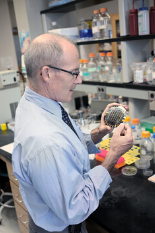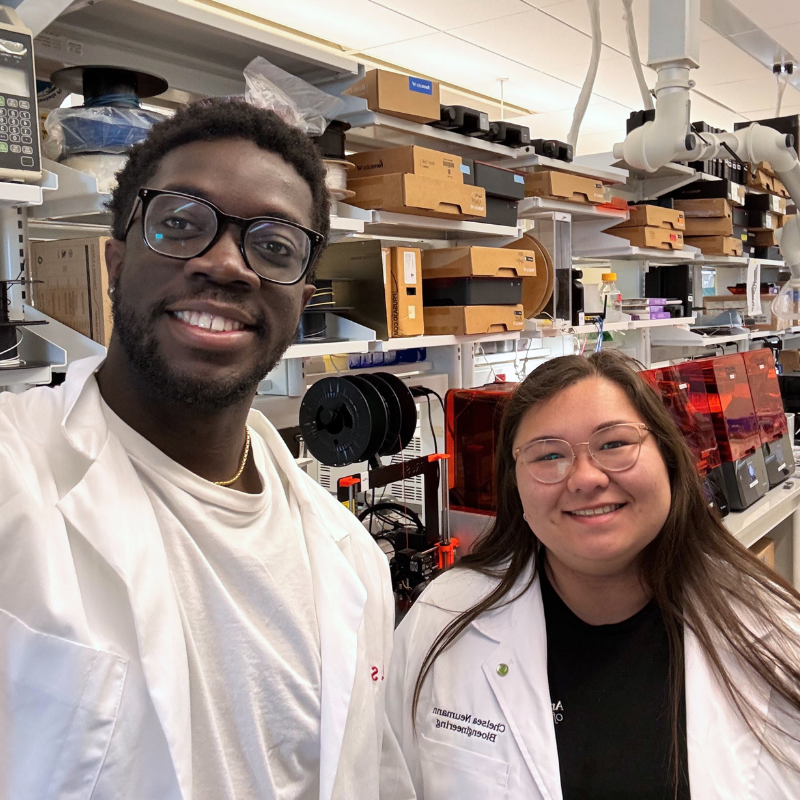News Story
Two UMD Pediatric Devices Pitched in NCC-PDI Competition

Gregory Payne, Institute of Bioscience and Biotechnology Research (IBBR)
On Monday, March 23, thirty semi-finalists pitched their pediatric device innovations in the National Capital Consortium for Pediatric Device Innovation’s (NCC-PDI) virtual “Make Your Device for Kids!” competition. NCC-PDI is a FDA-funded consortium jointly led by the Robert E. Fischell Institute for Biomedical Devices and Children’s National Health System.
The annual event was kicked off by hosts Bill Bentley and Martha Wang (Fischell Institute), with the help of Kolaleh Eskandanian (Children's National.) The annual event was organized by nonprofit accelerator MedTech Innovator, whose CEO Paul Grand administered the day's events.
The competition featured innovations in cardiovascular, orthopedic and spine, and NICU devices. Contenders first delivered minute-long “elevator pitches," then five-minute research presentations to virtually attending judges.
Two of the proposed pediatric devices - CorFix and DSECCA - were born out of the University of Maryland, College Park.
CorFix is a virtual reality surgical planning system for cardiovascular disease diagnosis and graft design and optimization. The platform aims to reduce uncertainties, tailor grafts, and prevent complications pertaining to invasive surgery for congenital heart defects in young children. Approximately 327,500 of these surgeries are performed on infants annually across the globe. CorFix was co-founded by Mechanical Engineering assistant professor and Fischell Department of Bioengineering/Fischell Institute affiliate Axel Krieger, postdoctoral researcher Xiaolong Liu, and Ph.D. candidate Byeol (Star) Kim. Both Liu and Kim are researchers in Krieger’s Medical Robotics and Equipment laboratory. The project also received support from Indicated, LLC, Children’s National Hospital, and the University of Chicago Medical Center.
DSECCA (Differential Scanning SpectroElectroChemical Analyzer) is a platform device designed to rapidly discover biomarker signatures of oxidative stress. The idea proposes the use of redox probing to detect oxidative damage in protein samples. Researchers aim to use the device for faster detection of Necrotizing Enterocolitis (NEC), which affects 10% of premature infants. The disease has a high mortality rate due to its sudden onset and fast progression. Its few “warning signs” include inflammation and oxidative stress - which DSECCA seeks to identify earlier. University of Maryland Institute for Bioscience & Biotechnology Research (IBBR) professor Gregory Payne and assistant research scientist Eunkyoung Kim conducted electrochemistry research for DSECCA, while Fischell Institute Inaugural Director Bill Bentley and Chief Engineer John Rsaza worked on device prototyping. The project also received clinical research support from Maryland Psychiatric Research Center and Children’s National Hospital.
Competition winners will be announced in May 2020. Up to 10 finalists selected from this event will participate in a newly created pediatric track in the MedTech Innovator accelerator program and advance to the October 2020 competition finals in Toronto as part of the 8th Annual Pediatric Device Innovation Symposium hosted by Children's National Hospital. Finalists will pitch for a share of up to $250,000 in grant awards.
Published March 26, 2020









